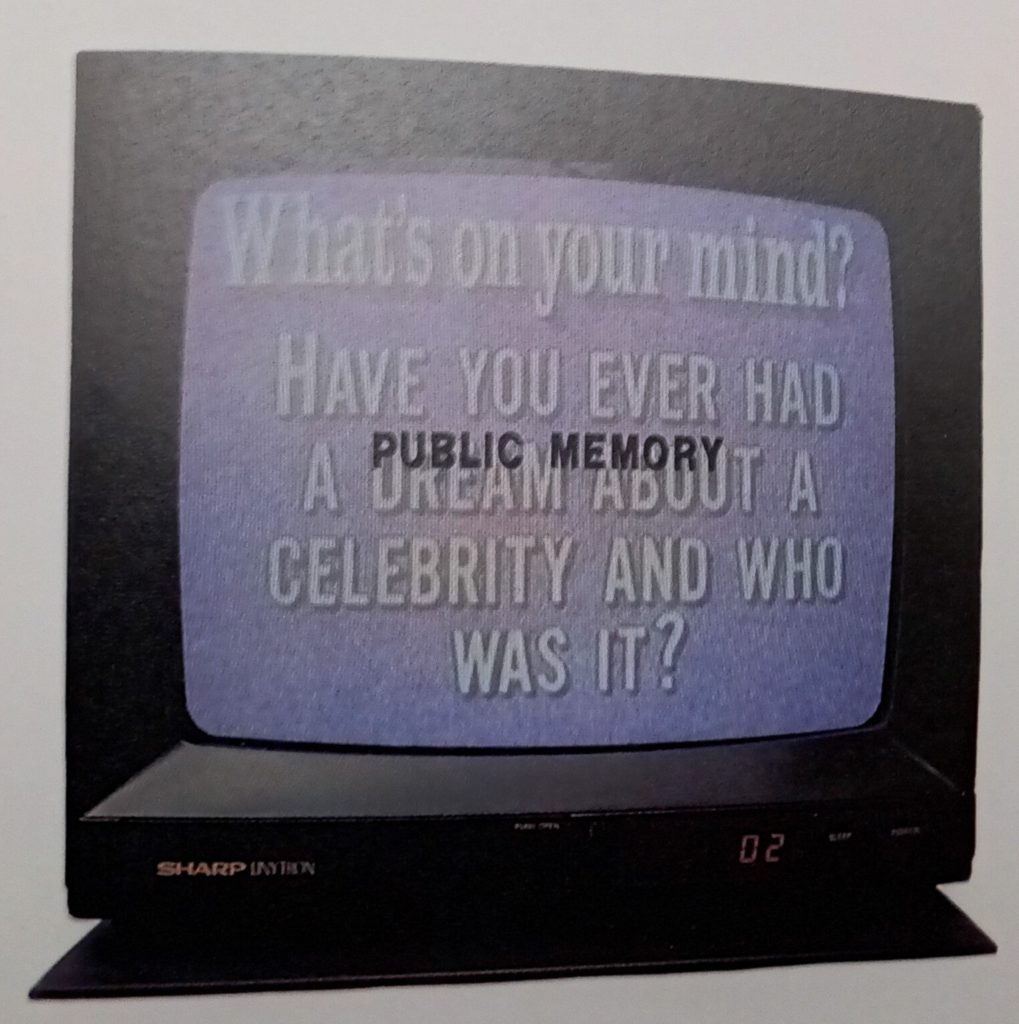It is still taking me some time to loosen up my (metaphorical) tongue after the silence of the last few weeks. Sure, I know he’s still been posting every day, but he’s not been channeling my voice and so I need get back into the swing of speaking to you through my stenographer/librarian.
Yesterday I mentioned Pamela M. Lee’s book The Glen Park Library: A Fairy Tale of Disruption (no place press, 2019). and even used a quotation from it as my post’s title. (To be precise, the posts are still his, I just dictate to him what he needs to put in them, well, at least when he is willing to listen!). Lee was writing about the 1987 work Total Recall by Gretchen Bender being a kind of library and I liked the way she was thinking. A library is so much more than a collection of books, it can be a collection of anything, in Bender’s case, of clips from TV shows presented in a bank of screens to dazzle and drug your eyeballs. And – this is the part I like best – Lee selected this work to be considered in relation to the library, as opposed to works of art chosen – by committee – to be included in library spaces. I just want to second Pamela’s motion and have Total Recall not only be included in your local library’s art collection, but also be a library in how it (to quote Lee) ‘constitutes knowledge, openness, and publicness’.
Now where I haunt there were no books about Bender’s work or including an image of Total Recall (you can Google it if needs be), so instead I’ve had him post a detail of her work Aggressive Witness-Active Participant (1990) (clicking on the title leads you to a 2019 essay by Lane Relyea) from the exhibition New Works for New Spaces at his local arts hotspot, the Wexner Center of the Arts reproduced in the 1991 catalog Breakthroughs: Avant-Garde Artists in Europe and America, 1950-1990.

It was actually re-installed in a different gallery in 2020, and you can enjoy a video tour to see for yourself as well as read essays on the work by Kris Paulsen and Bill Horrigan, and then think about what it might mean to engage with this work as a library as well, constituting its own forms of knowledge, openness, and publicness across its screens and on a single screen in its archived form on the Wex website, and how it forms public memory.